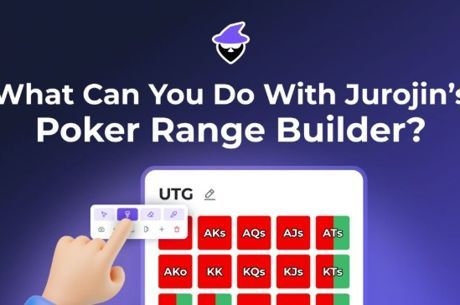Setting Limits and Getting Paid in Poker

Should I stay or should I go? Should I set a loss limit before my poker session? How about a win limit? Maybe a time limit?
It's a conundrum for many players — how long to play. And for many, especially those at the beginning of their poker learning curve, it's an important question.
I'll tell you what the conventional wisdom is regarding setting limits on how much you play poker. And then I'll give you an alternative. See what makes more sense for you.
The conventional wisdom is that you should not set a loss limit — that is, an amount you are prepared to lose and once you hit that limit you will depart. Nor should you set a win limit or an amount won that once you've reached it you leave the game. Nor (says convention) should you set a time limit or a period of time after which you should leave whether you are up or down, or whether the game is good or bad.
Rather, you should play in a game if you judge yourself to have the best of it, and remain in the game as long as you continue to have the best of it. Meanwhile you should leave if you judge yourself to have the worst of it (and not before), no matter how you're doing or how long you've been at it.
Advocates of this view correctly point out that leaving a good game in which you have the best of it because your opponents are playing worse than you is a mistake. By doing so you are depriving yourself of potential profit. Take advantage, they say, because not all poker games will be profitable, even for a good player.
They also point out that setting a win limit, a loss limit, or a time limit artificially interferes with your being able to assess when game conditions are favorable for you. You should thus eschew such artificial limits and focus on what matters — namely, whether the game itself has a positive or negative expectation for you.
Following this advice works well in theory. For example, if you earn $1,000 in an hour in a great game, but have set a $1,000 win limit, you're foolish to leave. If the game is great, you should continue to play and win as long as it remains so.
Similarly, if the game is great but you are down $1,000 because of the vagaries of chance — because variance has delivered you one unfortunate bad beat after another — then you are also hurting your expectations by leaving that great game.
Likewise, if you set a time limit, and now must leave just because your alarm clock goes off but the game is still terrific, you're costing yourself profit by leaving.
As long as the game remains good, you should stay and take advantage. But how do you know, especially as a beginning or intermediate player, that the game is really as good as you size it up to be?
In fact, as long as the game remains good, though you may be winning or losing, you should stay and take advantage of those positive expectations as long as they remain, variance and/or time limits notwithstanding.
But here's the crux of the problem — how do you know, especially as a beginning or intermediate player, that the game is really as good as you size it up to be? How can you be sure while you are in the midst of a game, affected as you may be by your wins or your losses or the wearying affects of time, that it really is as good a game as you think it is?
Game assessment is very subjective. While a seasoned veteran may be great at knowing who the fish are and who the good and great players are, a less experienced and less skilled player may be fooling him or herself about the relative quality of the play and the skill level of opponents.
With few exceptions, it's often impossible for a new or intermediate player to know, with any degree of certainty, how good or how bad other players really are. Similarly, though you may think that you're better than they are, how certain are you about your self-assessment, especially after you've been playing for a long time?
Then there's still another problem that you face, especially when you are losing. Losing often has a corrosive effect, making it more difficult for some to continue to play at their best.
Sure, at your best you may be better than the eight clowns in your game. But unfortunately, if you've been getting beaten over the head for two or three hours, even if the reason for those losses are bad luck rather than bad play by you, how sure are you that you will be able to remain at your best going forward?
Most of us, the vast majority in fact, do not play like immutable poker machines, mechanically maintaining our best game through thick and thin. Most of us degrade when we lose — doubting ourselves, becoming tentative, losing something, questioning our reads, not playing with confidence, and ending up at some sub-optimal level that no longer rules the game that used to be great.
Similarly, sometimes our games tend to be drained of their vitality by time. A long session often saps our powers of concentration and focus. While we started out playing intentionally and purposefully, our play may have degraded out of weariness into something habitual, predictable, and exploitable by even our clueless opponents.
Also problematic — just as our game is going south, so, too, is our ability to perceive that it is going south. And so we end up thinking the game we're in is great and that we have an advantage because our powers of observation have been sapped over time. Had we a poker coach at our elbow, he would advise us to leave. But the inner coach is long asleep, so we stumble into loserville.
There's a solution to this problem to be sure. But it violates conventional poker wisdom. It calls for setting limits that can act as a circuit breaker based on objective conditions, overriding our subjective selves to protect us from bad judgment. What's a player to do? Time limits, win limits and loss limits are all artificial. And you don't want to sacrifice opportunities to play in great games just because you may be winning or losing.
Here's what I recommend as a way of dealing with this dilemma.
For all but the strongest and most consistent winning players, with many years of consistent play (and you know who you are), I strongly advocate setting a time limit — two hours or less, as the limit of your session, no matter how you are doing. That's right. Two or three hours at the outside, and perhaps less at first while you're still learning.
During that period play your best game. Pay attention to your decisions. Don't get distracted by your wins or your losses. And then, when your time limit is up, whether you are up or down, leave the table. Leave your chips on the table if you want. But leave the table. Go for a walk, get something to eat, but leave the game entirely — at least for 30 minutes.
Once you've left, think about your game. Think about your opponents. And think most of all about yourself. How have you been doing? How have your decisions been? Think about your difficult hands and how you decided to do what you did when playing them. What do you think of your judgments now that you're away from the action? Are you still alert, attentive, engaged, and aware? Do you still think you have an advantage over your opponents?
The best place to determine if you're still at your best is not while you're playing, but away from the table without the distractions of the game.
Similarly, I recommend that you set a win limit and a loss limit before you enter your playing session. Playing $2/$5? Make it $500. Playing $1/$2? Make it $300. It doesn't really matter. But it should be some meaningful amount that doesn't represent your entire bankroll for the session. When you've reached either of those numbers, if it's before your time limit — positively or negatively — give yourself a similar break and take your walk, or eat your meal, but get away from the table for some time to reflect on how you're doing.
The best place to determine if you're still at your best is not while you're playing, but away from the table without the distractions of the game. If after your 30 minutes or more of reflection and thought you determine that you're still on top of your game, well, then go back with some new limits — win limits, loss limits, and time limits as triggers for some more intentional thinking.
When you return, your new limits should probably be slightly less than your original limits as you will now be playing on top of your initial session. And when you reach them (win, loss, or time), repeat again.
Finally, even if you're doing great and feeling great, when you've done this three or four times, end your session for the day or night. Don't play more than eight or nine hours no matter what. There's always another game. You can always come back, refreshed and ready.
Some of you will resist this advice and continue to play your marathon sessions without breaks, convincing yourself that the game is great and you're still at your best. Go ahead. Maybe you're right.
But looking at such limit-setting this way — not as an artificial means to stop playing, but rather a way to force you to take needed breaks and reflect constructively on your game — can be greatly beneficial, especially for new or intermediate players.
Ashley Adams has been playing poker for 50 years and writing about it since 2000. He is the author of hundreds of articles and two books, Winning 7-Card Stud (Kensington 2003) and Winning No-Limit Hold'em (Lighthouse 2012). He is also the host of poker radio show House of Cards. See www.houseofcardsradio.com for broadcast times, stations, and podcasts.










